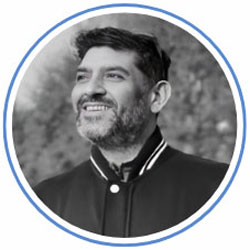A NOTE ON ANGER
Anger is a signal worth listening to.
Anger can motivate one to say no to the ways in which one is being defined by others and yes to the dictates of the inner self.
Anger is neither legitimate or illegitimate, meaningful, or pointless!
Anger simply is!
If feeling angry signals a problem, venting anger does not solve it.
Venting anger may serve to maintain, and even rigidify, the old rules and patterns in a relationship, thus ensuring that change does not occur.
The nice syndrome is to avoid anger and conflict at all costs.
The bad syndrome is to get angry with ease, but to participate in ineffective fighting, complaining, and blaming others that lead to no constructive solution.
Learn to tune in to the true source of anger and clarify where one stands.
Learn communication skills
Learn to observe and interrupt unproductive patterns of interaction.
Learn to anticipate and deal with countermoves or change back reactions from others.
Learn response-ability.
ANGER KEYS
Fighting and blaming is sometimes a way both to protest and to protect the status-quo when we are not ready to make a move in one direction or another.
Our job is to keep clear about our own position in the face of a countermove – not to prevent it from happening or to tell the other person that he or she should not be reacting that way.
“Nothing wrong with wanting to change someone else. The problem is that it usually never works!”
Independence means that we clearly define ourselves on emotionally/ other important issues, but it does not mean emotional distance or cutting off.
It is not just anger or fighting that we learn to fear, we avoid asking precise questions and making clear statements when we unconsciously suspect that doing so would expose our differences, make the other person/s feel uncomfortable, and leave us standing alone.
When we do not put our primary emotional energy into solving our own problems, we take on other people’s problems as our own.
TRIANGLES OR MORE
We reduce anxiety in one relationship by focusing on a third party or more, who/ whom we unconsciously pull into the situation to lower the emotional intensity in the original pair.
TROUBLESHOOTING
Begin to observe your characteristic style of managing anger.
The following can be used as a general guide:
1) PURSUERS
- React to anxiety by seeking greater togetherness in a situation.
- Place a high value on talking things out and expressing feelings, and believe others should do the same.
- Feel rejected, hurt, and take it personally when someone close to them wants more time and space alone in coming to terms with the problem/ situation.
- Tend to pursue harder and then coldly withdraw when an important person seeks distance.
- Negatively label themselves as too dependent or too demanding.
- Tend to label others as those who cannot handle feelings and closeness.
2) DISTANCERS
- Seek emotional distance or physical space when stress is high.
- Consider themselves to be self-reliant and not need help types.
- Have difficulty in showing their needy, vulnerable, and dependent sides.
- Manage anxiety in personal relationships by intensifying work-related projects.
- May cut off an interaction totally when things get out of hand rather than seeing the possibilities in it for resolution.
- Open up more freely when they feel they are not pushed or pursued.
3) UNDERFUNCTIONERS
- Tend to have several areas where they just cannot get organized.
- Become less competent under stress, thus inviting others to take over.
- Tend to develop physical or emotional symptoms when stress is high in either the personal or the work front.
- Have difficulty in showing their strong, competent side to others.
4) OVERFUNCTIONERS
- Know what is best not only for themselves but for others as well.
- Move in quickly to advise, rescue, and take over when stress hits.
- Have difficulty staying out and allowing others to struggle with their problems.
- Avoid worrying about their own personal goals and problems by focusing on others.
- Have difficulty in sharing their own vulnerable, under functioning side.
5) BLAMERS
- Respond to anxiety with emotional intensity and fighting.
- Have a short fuse.
- Expend high levels of energy trying to change someone who does not want to change.
- Engage in repetitive cycles of fighting that relieve tension but perpetuate the old pattern.
- Hold the other responsible for one’s own feelings and actions.
- See others as the sole obstacle for making changes.
DEALING WITH ANGER
Do speak up when an issue is important to you.
Do not strike while the iron is hot.
Do take time out to think about the problem and to clarify your position.
Do not use below the belt tactics.
Do speak in terms of “I”.
Do not make vague requests.
Do try and appreciate the fact that people are different.
Do not participate in ineffectual arguments that go nowhere.
Do recognize that each person is responsible for his or her own behavior.
Do not tell another person what she or he thinks or feels or should think or feel.
Do try to avoid speaking through a third party.
Do not expect change to come about from ‘hot- and- run’ confrontations.
Do tell the person you are angry with.
Do not try to play games of telling secrets or gossip.
Do tell the hierarchy about your anger, while going through the proper channels, and being open about it.
Do not become the third party in someone else’s triangle.
 Rashid Ansari is a practitioner and teacher of performing arts, martial arts and various mind-body Wellness integrated disciplines for over 45 years. He is an international master instructor in Chinese, Japanese, and Korean martial arts as well as a contemporary and modern dance instructor and choreographer and has delved deeply into Physical Theatre and Theatre Movement. Rashid is associated with Syngrity as a Master Facilitator and conducts our signature wellness program for stress management – Kokoro
Rashid Ansari is a practitioner and teacher of performing arts, martial arts and various mind-body Wellness integrated disciplines for over 45 years. He is an international master instructor in Chinese, Japanese, and Korean martial arts as well as a contemporary and modern dance instructor and choreographer and has delved deeply into Physical Theatre and Theatre Movement. Rashid is associated with Syngrity as a Master Facilitator and conducts our signature wellness program for stress management – Kokoro







 MALATI VASUDEVA
MALATI VASUDEVA VIKRAM BADHWAR
VIKRAM BADHWAR PRIYANKA KUMAR
PRIYANKA KUMAR SUMAL VARGHESE
SUMAL VARGHESE














